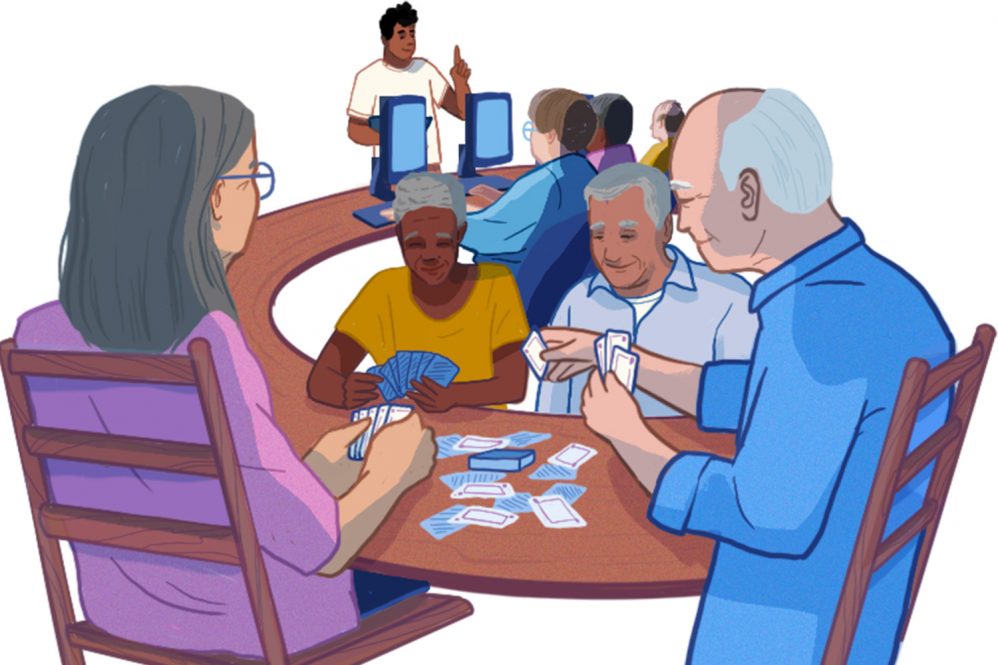“We live in a world in which we need to share responsibility. It’s easy to say, ‘It’s not my child, not my community, not my world, not my problem.’ Then there are those who see the need and respond. I consider those people my heroes.”
—Fred Rogers
In Mister Rogers’ view, Michelle (Bussiere) Puzzo ’98 (CAHNR) is a hero.
“Just help people,” says the co-founder, chief executive, and only paid staff member of UR Community Cares. “Just help people that say they need help.”
Talking in her office on the second floor of the Eastside Neighborhood Resource Center in Manchester, Connecticut, Puzzo is the consummate responder, offering solution after solution to problems faced by older adults who seek to age in place in a world where community is diminished, aging is stigmatized, and help is hard to come by — and expensive.
For decades after earning her bachelor’s in physical therapy, Puzzo provided in-home PT to older people after strokes, heart attacks, or surgeries. On most visits, patients would ask for something beyond the scope of her work — a hand with laundry, taking out the trash, or looking up a cleaning service on their smartphones.
“Many people were just living — and struggling to live — alone at home,” she says. Many couldn’t afford an aide or didn’t qualify for assistance programs. She saw it on a personal level, too, with her own grandmother who suffered from macular degeneration and dementia. For years, Puzzo mowed her grandmother’s lawn weekly and helped her with miscellaneous needs, pitching in as the entire family rallied to help Meme live her later years in her home. “She was so reliant on us. It’s hard on a family,” Puzzo says. “We’re just not set up socially to have these support systems.”
After Meme died in February 2019, Puzzo acted on the idea for UR (pronounced “your”) Community Cares, which had been gestating for a while. She registered her business with the state and set up a website; from there, it has been Puzzo waking up at 3 a.m. every day, tapping into resources, connecting with others who want to help, networking, marketing, and raising money to grow one person’s notion into a statewide organization of thousands.
Just before the pandemic hit, Puzzo created Neighbors Helping Neighbors, the signature program of UR Community Cares. Its secure online platform connects volunteers with people over age 70 (or those over 18 with a disability) who need help. Participants on both sides undergo background checks (“Just because you’re 80 doesn’t mean you’re a good person,” Puzzo says), and volunteers can’t do any licensed work, but requests for housework, transportation, yardwork, and companionship are fair game.
“The phone is ringing all day long — insurance company denials, lack of community support, people not able to drive themselves home from a colonoscopy,” Puzzo says. “This really adds value to communities to be able to support people that aren’t able to pay for private caregivers or handymen,” she continues. “The problem exists in every single town. The whole world is aging, and how are we going to handle it?”



